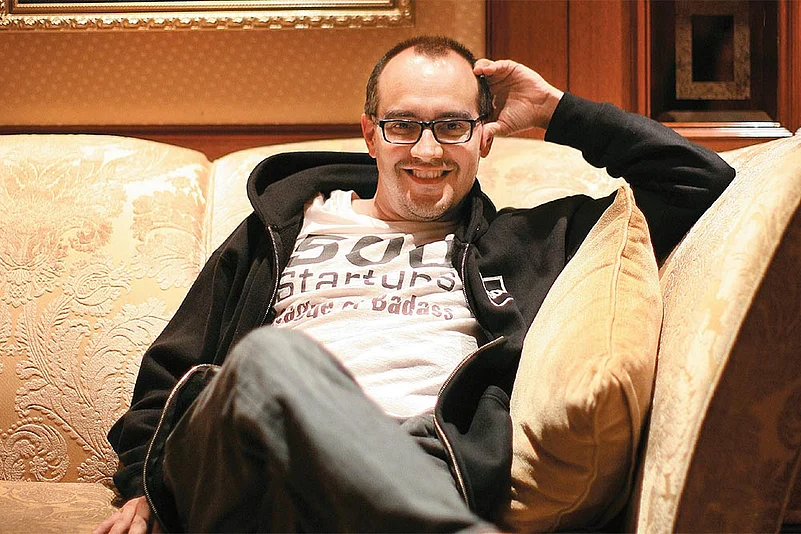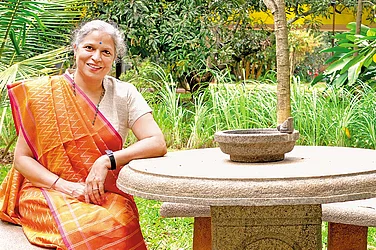California-based 500 Startups isn’t your regular accelerator and its founder and ‘Sith Lord’, Dave McClure, isn’t your regular VC. You either love him or hate him but you can’t ignore him. A veteran of PayPal, Founders Fund, Facebook and LinkedIn, among others, he has invested in over 250 companies, including Mint.com, Twilio, Wildfire, SendGrid, SlideShare and MakerBot in the 20 years he has spent in Silicon Valley. In 2010, he started 500 Startups, a seedfund and accelerator, right under the shadow of the most successful accelerator to come out of the Valley, the Y Combinator. “A lot of people thought we were f*****g crazy to compete with [Y Combinator] in their own backyard. But we knew we were going to be different,” says McClure, on a recent visit to India as keynote speaker at the Asian Business Angel Forum 2013 organised by the Mumbai Angels.
The difference? 500 Startups would find not just the black swans but also groom the ugly ducklings. With $80 million under management, the fund has a team of 30 of which 10 members make the investments. Over the past four years, it has invested in more than 600 businesses across 45 countries, of which 400 are still up and running. McClure believes around 100-200 of those investments will be of some consequence some day.
The fund runs its accelerator programme out of Mountain View, California, with two batches of 30-odd companies graduating every year. A second accelerator programme will be launched in a couple of weeks from a new office in San Francisco. So, on average, 500 Startups will have 120 companies coming out of its accelerator programmes every year.
At the accelerator stage, the fund makes an investment of up to $50,000 for about 5% stake. At the seed stage, investments are up to $250,000. “We don’t like to fund more than 20-30% of the investment round and our first-round cheques are typically never more than $100,000,” says Pankaj Jain, venture partner at 500 Startups and head of its India operations. “It is important to not over-invest early on in a startup. Early-stage investments are high-risk and it doesn’t make sense to go all in at once. Successful angel investors in the Valley have typically made small but early investments and a number of small investments.”
500 Startups has a similar message for entrepreneurs as well. “We believe that until they are able to prove the product-market fit, entrepreneurs should be willing to take smaller amounts of money and give up little of their company rather than taking huge amounts of money and giving up 20-30% of their company,” says Jain. This way, entrepreneurs can raise more money at higher valuations and investors would also be willing to pay a higher valuation since the risk is lower after the product-market fit is established.
The fund has made over 150 investments outside the US: in Asia, Latin America and Europe. In November 2012, 500 Startups drew up plans to raise a $5 million fund called 500 Startup Wallah to invest in Indian startups. While it is yet to announce its formal closure, 500 Startups continues to actively invest in India.
Mukund Mohan, director, Microsoft Ventures, and his wife Vinita Ananth are investors in 500 Startups. “I have known Dave for over 10 years now and his approach is very disruptive. When I looked at the startup funding landscape in India, I realised we need someone with his tenacity and his aggressive approach to funding good entrepreneurs quickly was the right approach,” says Mohan.
In India, the fund has already invested in nearly 18 diverse startups such as Pricebaba, WalletKit, TradeBriefs, Squarekey, Instamojo, Tushky, MyGola and CucumberTown. It has also put in money in 12 companies along with GSF Accelerator, with whom 500 Startups has a tie-up.
But McClure doesn’t seem too impressed with the investing environment in India. He believes Indian VCs are not taking enough risks and not backing many companies, citing the lack of ideas. “Ideas are not awesome, execution is awesome. There will be always some companies that won’t go on to raise chunks of money, but that is okay. We, as investors, need to write more cheques. Investors in India are less confident about their entrepreneurs and you need to kick their butts,” he says.
But then, McClure also believes VCs themselves haven’t scaled and reinvested in their own business even as they lecture their portfolio companies on the same issues. “VCs have been lazy b******s taking fat paycheques from lazy LPs who haven’t challenged them to be more innovative. We have been terrible investors, with more than half the VCs not even returning capital, yet we think we are golden gods,” he said in his keynote address. His idea: given that companies can be built for less, thanks to innovation in technology, investors should be making more smaller bets and looking for reasonable exits rather than making just a few bets and looking for big bang exits. 500 Startups’ own track record: it has had over 25 exits so far with three in the over-$100 million bracket. “I would be happier if I had one in five $25 million exits rather one in 10-20 $100 million exits. Large exits are mostly the entrepreneurs’ doing, not the investors’.”
And this is perhaps the best time to start a business, he recommends. Startup costs are low; it is easier to acquire customers, thanks to different online platforms; and there is better access to capital. “Thanks to these factors, a number of smart people are starting companies and investors have a lot to choose from. And that is wonderful for both investors and consumers. Some of them will fail, but we will be fools on a smaller budget,” he laughs.
Whether his peers buy into this argument or not, McClure isn’t slowing down anytime soon. He remains bullish on the non-English speaking markets, which he believes will become huge markets over the next five to 10 years as more consumers go online. Not wanting to miss out on that, he’s probably on a flight right now looking for the next geek to fund.































